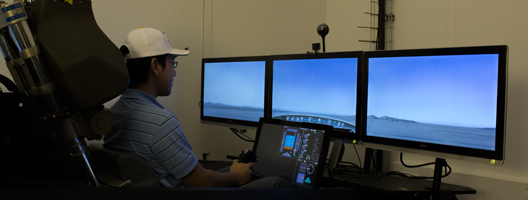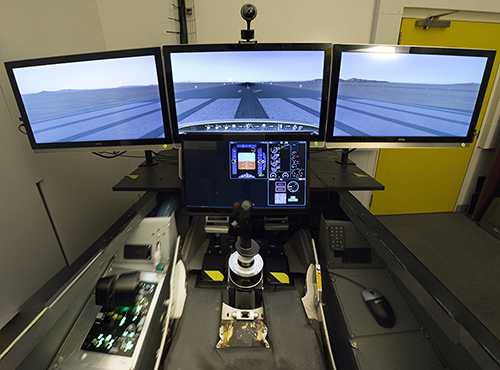Aerospace

Simulating overload of aircrew attention for optimal training benefit
Summary
Is a CASE study by the Loughborough University Research School of Systems Engineering in conjunction with the EPSRC and BAE Systems, examining the relationship between workload and performance in regards to the training benefit in a simulated environment. With simulation becoming a key factor in training of not only aircrew but expanding into other domains, there is a need to get the most gain out these resources when they are used. The study is to investigate if the relationship between workload and performance in regards to training improvement in the simulated environment.
Aims & Objectives of the research
The study aims to investigate if trainees in a flight simulation can have their workload levels repeatedly and consistently loaded up to a high level without overloading them. If this is possible, is it then possible to keep a trainee at this saturation level of workload though out a simulation activity. The study aims to identify how this loading process compares to a non-loading process and if this can lead to greater gains for training.
The research is aiming to create a procedure which can be followed in order to load up a subject so their workload level is high but not over saturated. The process by which this is designed is to be domain independent so that the same procedure can be applied to other domains not just that of aircrew. The processes to be followed directs the simulation session as to which simulated events occur in order to load up the subject.

Research being undertaken
Flight simulation facilities have been developed and processes designed to manipulate trainee workload. The procedure which is being developed makes use of the simulators ability to give real time information upon the state of the vehicle so that a supervisor has performance data available during the simulation. Situational awareness of the trainee in the simulator is also collected in order to determine if they are becoming overloaded and starting to lose information which would then affect performance. By combining the SA and performance data with the designed processes a supervisor can attempt to manipulate the workload being experienced.
The study is conducting experiments looking to determine how a group with manipulated workload compares to a non-workload manipulated group. Looking at if improvement of performance occurs between the groups when each are given the same training time, also how the workloads of both groups differ to determine if the workload loading has the desired impact.
Expected Impact
The output of the CASE study hopes to guide the decisions made with regards to how simulator training is carried out in the future. Allowing for increased productivity from the same resources, those small changes in preparation for a simulated event could have a greater increase on the gains achieved by the users who experience a simulated event.
If the processes created to analyse and manipulate workload is shown to be successful it could be transferred from the flight domain and investigated further in other fields, such as automotive.
Download a pdf containing this information
